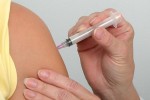The award known as American Nobel Prize was presented last Saturday to an 81 year old researcher for her work on a Chinese herb called Artemisia. Tu Youyou is the first Chinese citizen to receive the prestigious Lasker Medical Research Award. Her work, along with her research team, has studied the Chinese herb Artemisia (qing hao) which is used to cure malaria. Today the artemisia based drug created by Tu and her colleagues is now a standard treatment for malaria and statistics show it's success rate is 97 percent.
"I think the honor not only belongs to me, but also to all Chinese scientists," Tu said at the award ceremony held in New York. "The discovery of artemisinin is a gift to mankind from traditional Chinese medicine," Tu was quoted as saying by Xinhua.
"Not often in the history of clinical medicine can we celebrate a discovery that has eased the pain and distress of hundreds of millions of people and saved the lives of countless numbers of people, particularly children, in over 100 countries," Lucy Shapiro, a member of the award jury and professor of Stanford University, said while describing Tu's discovery.
This is very exciting news for Traditional Chinese Medicine. If we learn as a society to embrace the longstanding traditions and wisdom which botanical or herbal medicine hold, we will have the answers to many of the diseases of the 21st century. We can improve the quality of our life and our lifespan using the knowledge of herbal medicine pasted down for centuries. More research like that being done by Tu and her team could mean less lines for the unsustainable ER services and huge savings. As a society we need to learn about Chinese herbs and how we can use them to create American traditions of "Wellness for Centuries".
For more information on Malaria and Artemisia read this post. http://www.pacherbs.com/2009/04/



